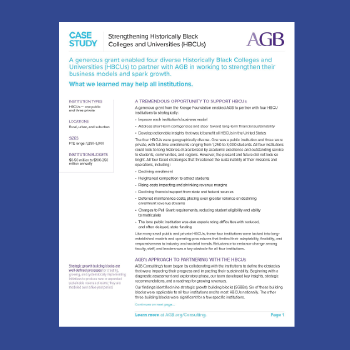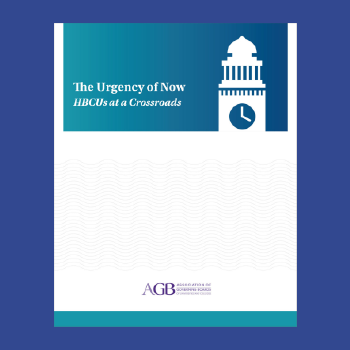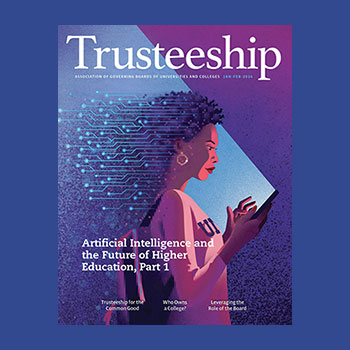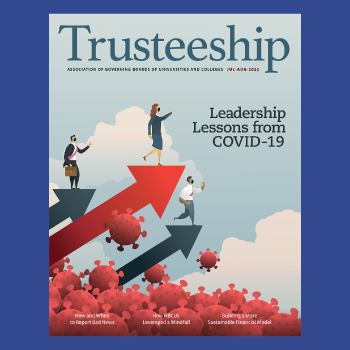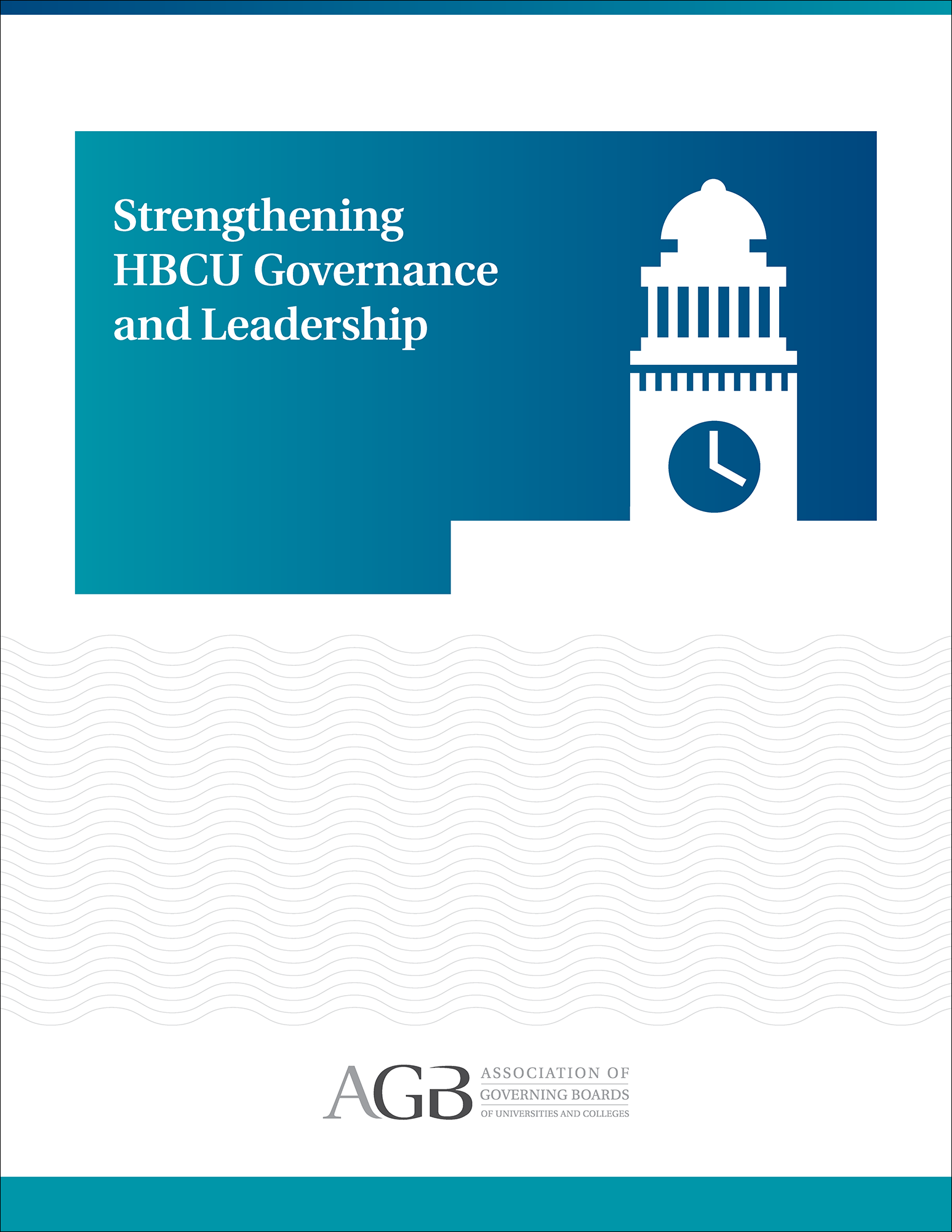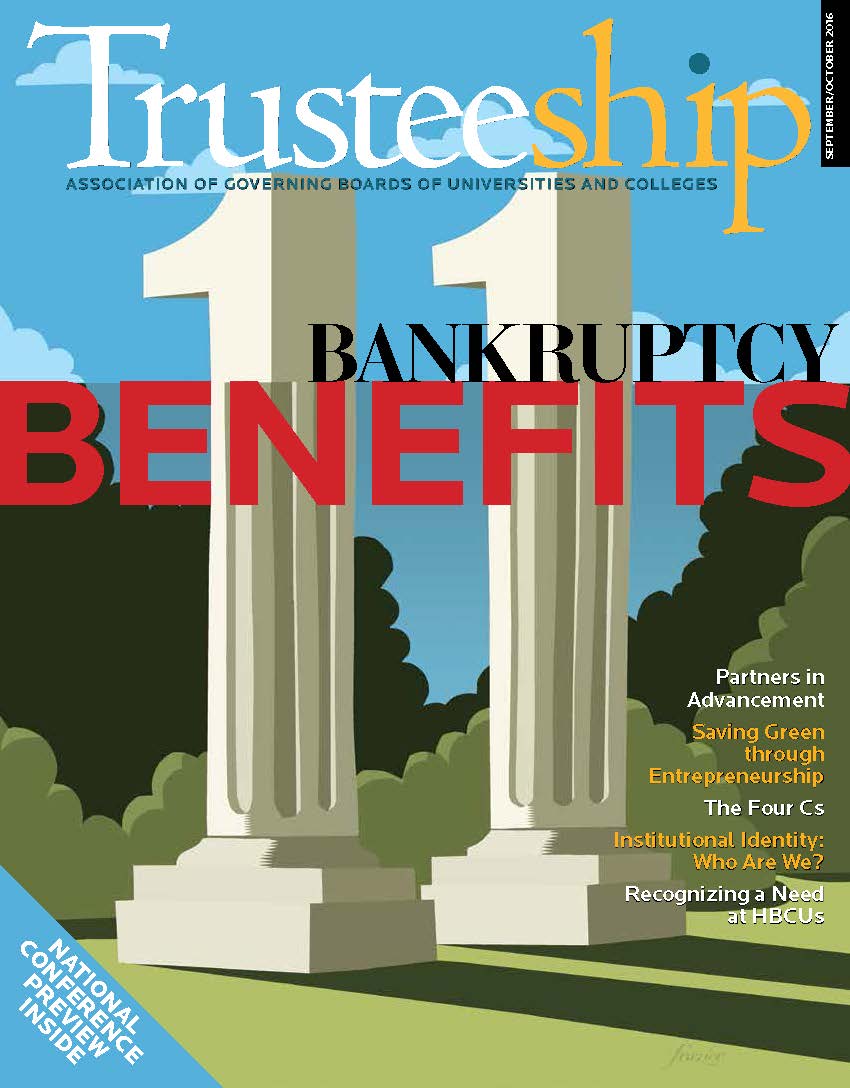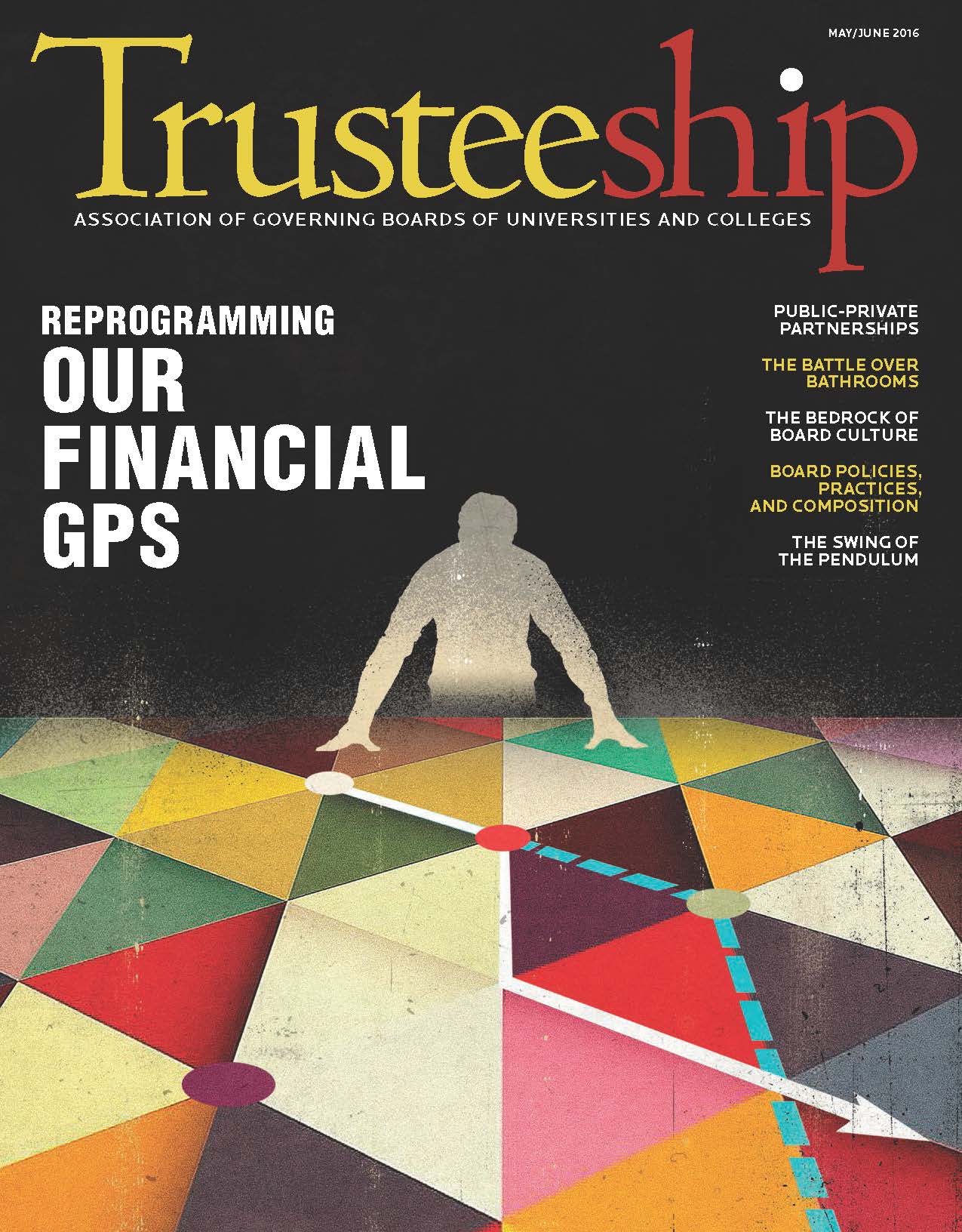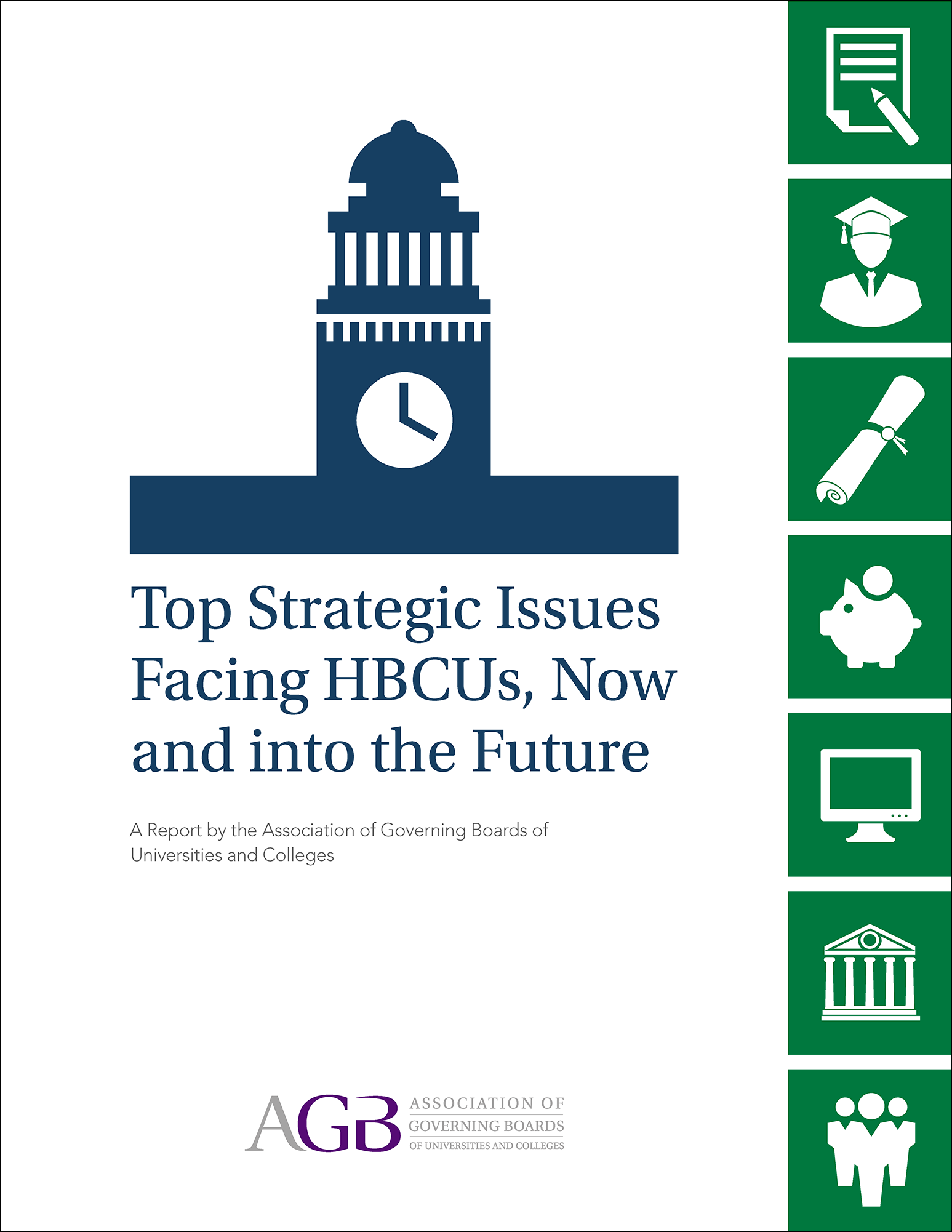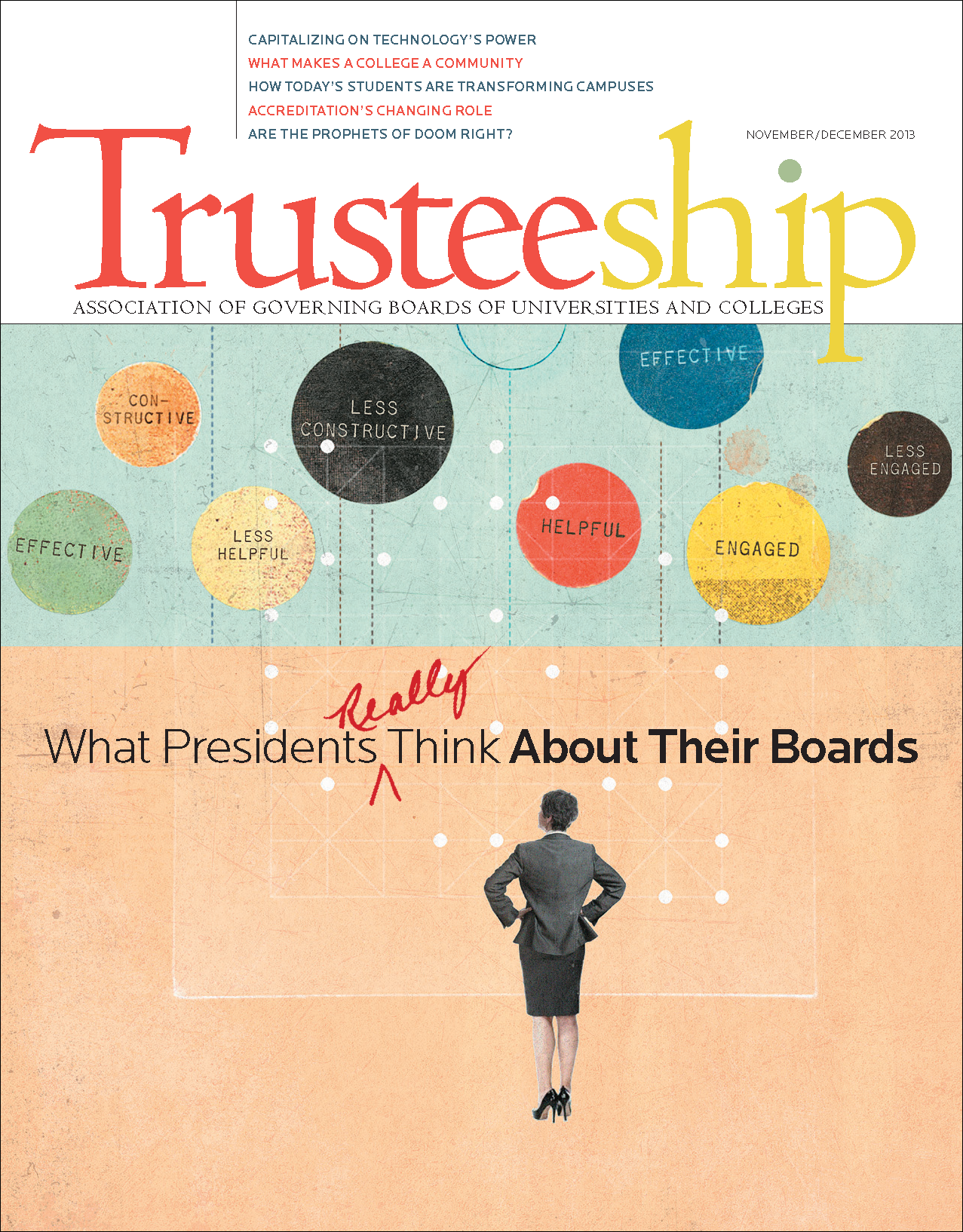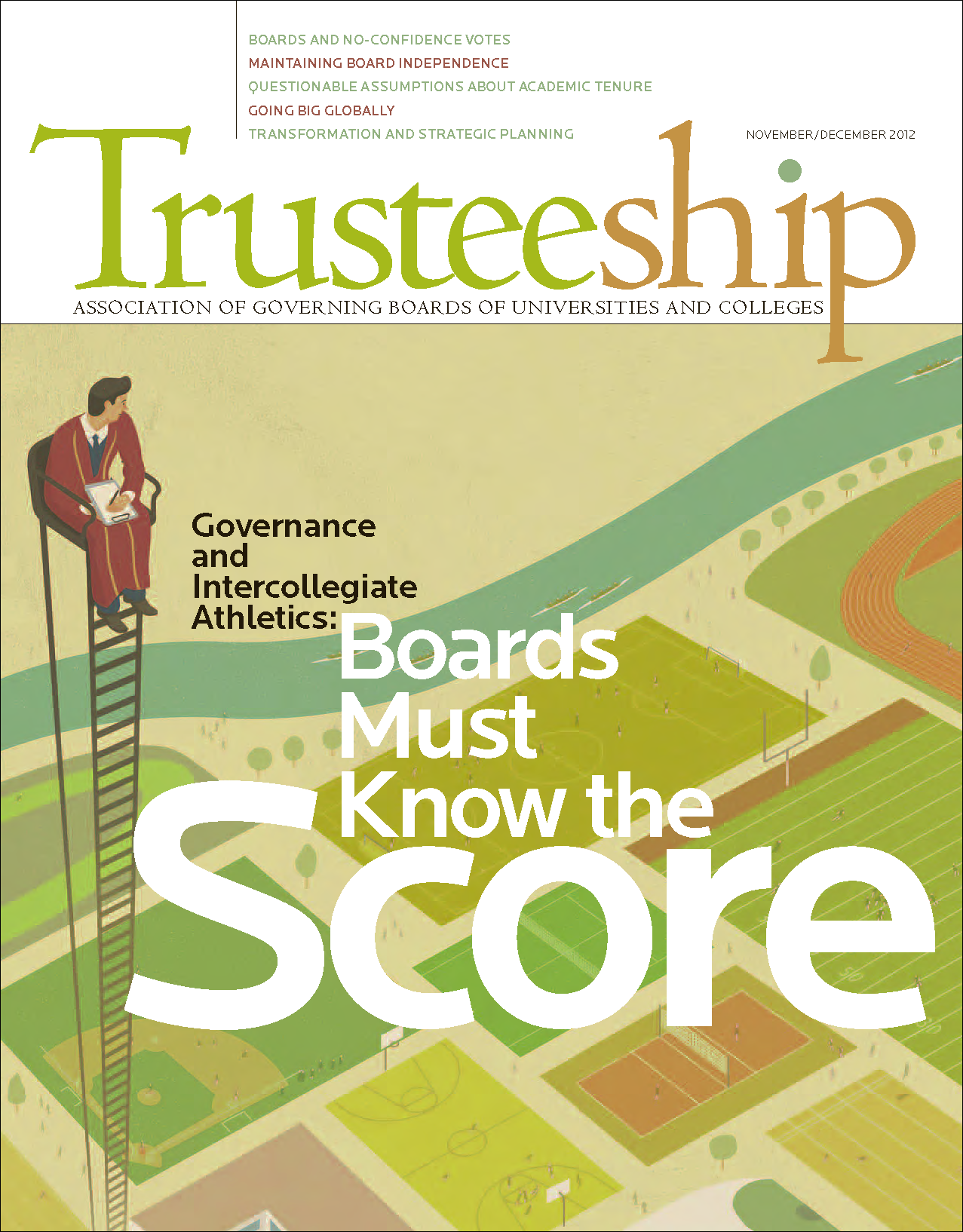Why this is important.
Historically black colleges and universities (HBCUs) hold an iconic position within American higher education. These institutions emerged during the period in American history when segregation was legally sanctioned and the admission of Blacks to White higher education institutions was uncommon. HBCUs can be credited with enabling African Americans, including many leaders of the American civil rights movement, to achieve the upward mobility that had long been denied them.
But HBCUs are at an inflection point. They grapple not only with the same challenges that all higher education institutions are confronting today, but also struggle against long-standing patterns of underfunding, small endowments, and new competition from other sectors of higher education that are seeking to diversify their student bodies.
AGB remains committed to strengthening HBCUs by empowering trustees of HBCUs to strategically govern with knowledge and confidence. Trustees must ensure these historic institutions remain bastions of opportunity for many low-income, first-generation, Black college students.
Questions for boards.
Click below to reveal questions for your board to consider:
Board Culture and Processes
Consequential Questions:
- Does our governing board embody our defined mission and strategy? When is the last time we updated our institution’s mission?
- Do our board members act as more than just names on a masthead? Does our board act collectively and do our individual board members understand their fiduciary duties, responsibilities, and how these translate to effective board performance?
- How diverse is our board? What perspectives are missing from the table and how can the board be more inclusive? How are potential new board members identified?
Source:
Shared Governance and Metrics
Consequential Questions:
- Does our governing board have a clear boundary between board policymaking and the president’s leadership and management of the institution?
- Does our board have a system for tracking key financial metrics that provide data relevant to long-term financial decision-making?
Source:
Enrollment Strategy
Consequential Questions:
- What would drive a particular segment of students to enroll in our institution? What strategies/media can we employ to attract students?
- What does our institution offer that is unique or exceptionally appealing to prospective students?
- Does our institution have a comprehensive enrollment strategy? What other comprehensive strategies do we have, and which are we missing?
Source:
Financial Sustainability
Consequential Questions:
- Do we know if our current educational and financial model is or is not sustainable for the next 10 years?
- What is our institution doing to grow our endowment? Do we have an effective institutionally related foundation that assists our institution in this endeavor?
Source:
Recommended resources.
We carefully curated these staff-picked resources for you:
Trusteeship for the Common Good
Trusteeship magazine, January/February 2024
By John Silvanus Wilson Jr.
A Fortunate Dilemma: How HBCUs Leveraged a $560 Million Windfall
Trusteeship magazine, July/August 2022
By Christopher Connell
My Journey to Higher Education Leadership
Blog Post
James E. Lyons Sr.
Prerequisites for HBCU Governance
Blog Post
Charlie Nelms and Alvin J. Schexnider


